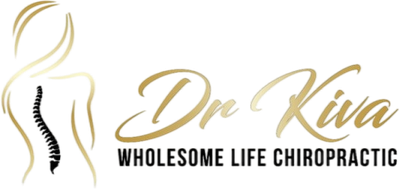The Importance of a Nutrient-Dense Diet and the Role of Nutraceuticals for Health
In today's fast-paced world, many people find themselves gravitating toward convenience foods that are often high in calories but low in essential nutrients. This shift has contributed to a growing epidemic of poor metabolic health, obesity, and chronic diseases. A nutrient-dense diet, which emphasizes whole, minimally processed foods rich in vitamins, minerals, and other beneficial compounds, is crucial for maintaining optimal health. However, for those who struggle to achieve this through diet alone, nutraceuticals can serve as an important adjunct for filling nutritional gaps.
Understanding Nutrient Density Nutrient density refers to the amount of essential nutrients in a food relative to its calorie content. Foods that are nutrient-dense provide a high amount of vitamins, minerals, and phytochemicals with fewer empty calories. Examples of nutrient-dense foods include:
- Fruits and Vegetables:Rich in vitamins, minerals, antioxidants, and fiber.
- Whole Grains:Provide B vitamins, fiber, and essential fatty acids.
-Lean Proteins: Such as fish, poultry, legumes, and nuts, which are vital for muscle health and metabolic function.
- Healthy Fats: Avocados, olive oil, and fatty fish offer essential fatty acids and help with the absorption of fat-soluble vitamins. Incorporating a variety of these foods into your daily meals can significantly improve nutrient intake, boost energy levels, support immune function, and reduce the risk of chronic diseases like heart disease, diabetes, and cancer.
The Consequences of a Poor Diet A diet lacking in nutrient density can lead to several health issues, including:
- Nutrient Deficiencies: Common deficiencies include vitamins D and B12, iron, and magnesium, which can lead to fatigue, weakened immunity, and other health complications.
- Weight Gain: Foods high in added sugars and unhealthy fats can lead to overeating and weight gain, increasing the risk of obesity-related conditions.
- Chronic Inflammation: A poor diet can contribute to chronic inflammation, which is linked to numerous diseases, including cardiovascular diseases and autoimmune disorders.
Utilizing Nutraceuticals for Health For those who may not be able to achieve a fully nutrient-dense diet due to lifestyle, budget constraints, or dietary restrictions, nutraceuticals can provide a valuable solution.
Nutraceuticals are products derived from food sources that offer health benefits, including dietary supplements, functional foods, and fortified foods. Here are several ways to effectively utilize nutraceuticals:
1. Choose Quality Supplements: When selecting nutraceuticals, look for high-quality products from reputable brands that undergo third-party testing. This helps ensure the potency and purity of the supplements.
2. Focus on Key Nutrients: Identify specific nutrients that may be lacking in your diet. Common supplements include multivitamins, omega-3 fatty acids, vitamin D, probiotics, and magnesium. Tailoring your supplement regimen to your health needs can enhance overall well-being.
3. Incorporate Functional Foods: Functional foods, such as those enriched with probiotics or fortified with vitamins and minerals, can also help enhance nutrient intake. Examples include yogurt with added probiotics or cereals fortified with iron and folic acid.
4. Combine Nutraceuticals with a Healthy Diet: Nutraceuticals should complement a balanced, nutrient-dense diet rather than replace it. Focus on whole foods first, and use supplements as a bridge to achieve optimal nutrient levels.
5. Consult a Healthcare Professional: Before starting any new supplement regimen, it’s wise to consult with a healthcare provider or a registered dietitian. They can help assess your dietary needs and recommend appropriate nutraceuticals based on your individual health profile.
In conclusion a nutrient-dense diet is crucial for maintaining health and preventing chronic disease. While it is always best to obtain nutrients from whole foods, nutraceuticals can play an essential role for those who may struggle to meet their nutritional needs through diet alone. By understanding the importance of nutrient density and effectively incorporating nutraceuticals, individuals can take proactive steps toward achieving better health and well-being. Remember, the journey to optimal health is a holistic process that combines smart dietary choices with informed supplement use.



